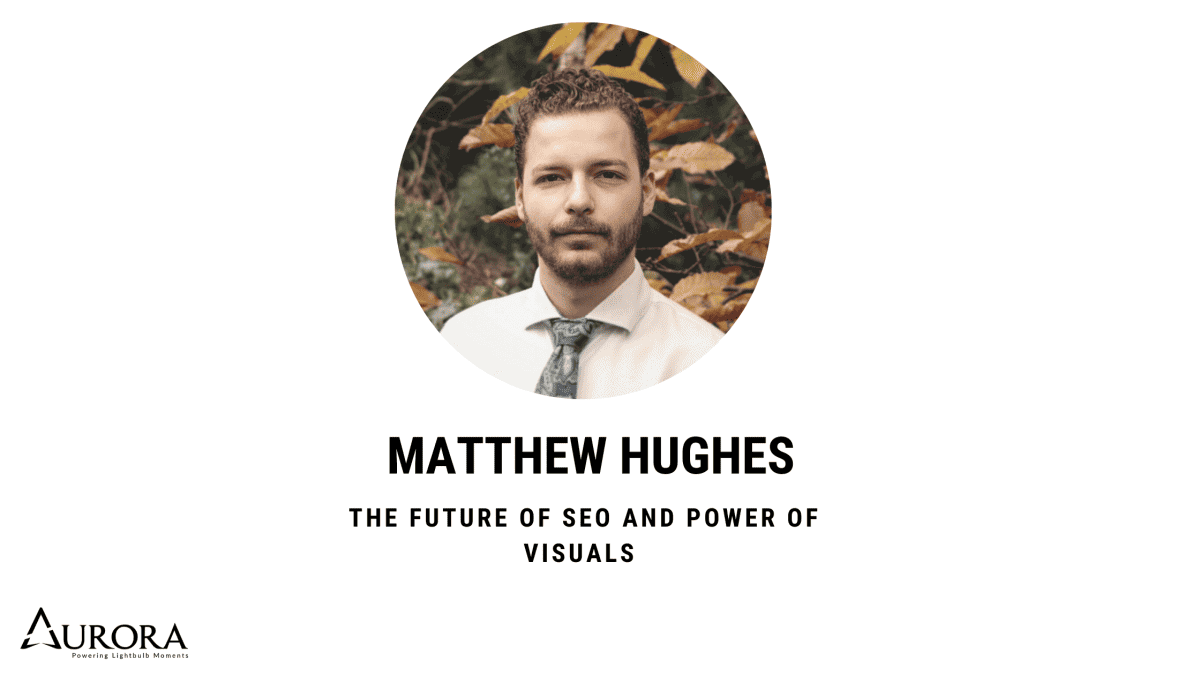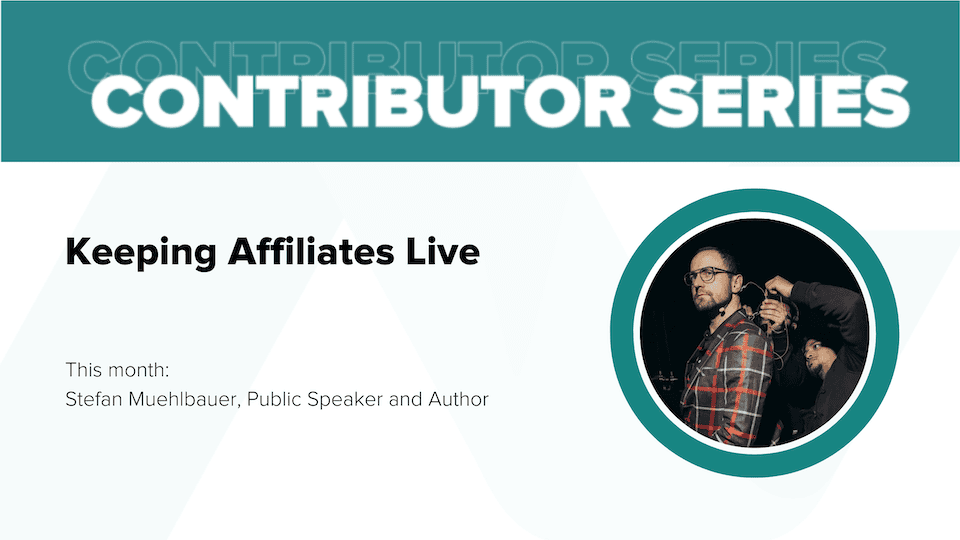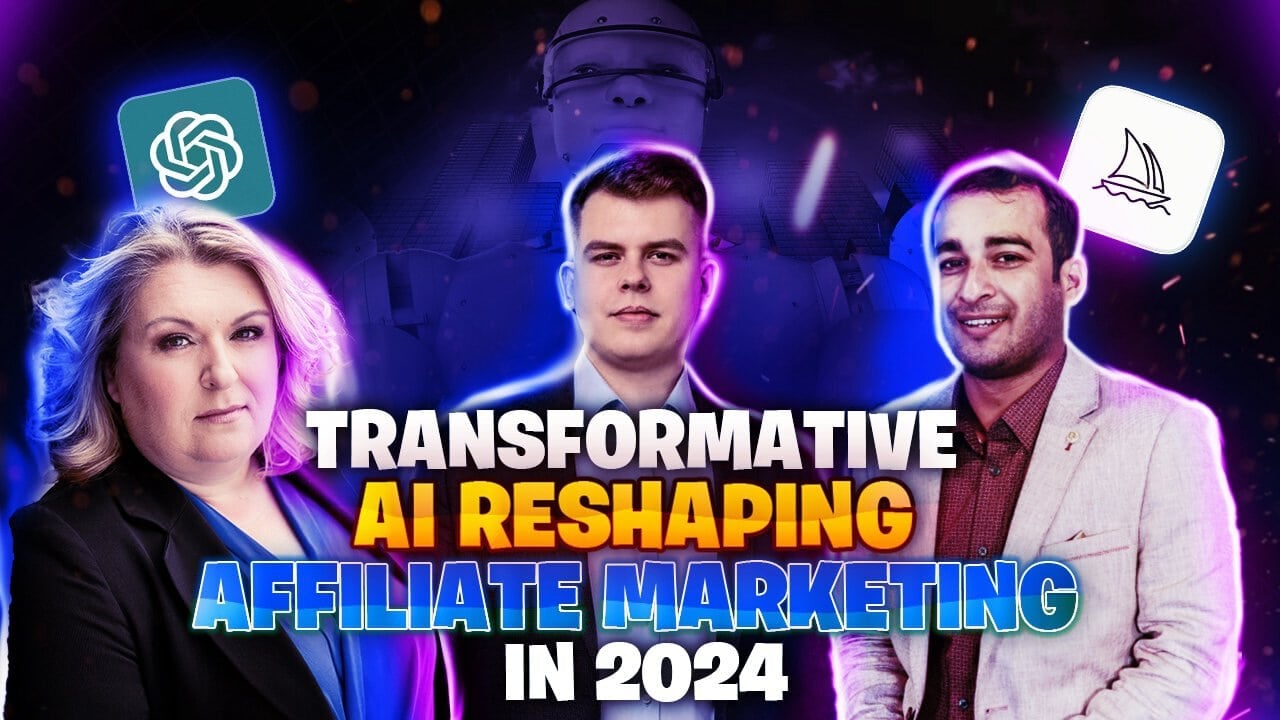The ever-changing world of SEO can make it difficult for site owners to keep up with. But to keep thriving in today’s online landscape, it’s vital that you do so.
One of the best ways to stay updated with SEO is by talking to the experts. That’s why today we’re interviewing Matthew Hughes, Editor-in-Chief and Managing Director of Top Business Tech. Matt is also the co-founder of UK-based marketing agency Aurora and teaches apprentices and adult learners about digital marketing alongside his current work.
He talks to us about an upcoming Google update next year, as well as the power of visuals in SEO and more.
Affiverse: What do you think is the significance of Google issuing a pre-warning about its 2021 update, bearing in mind that it usually doesn’t do this?
Matthew Hughes: “Google is sometimes tentative to issue pre-warnings because they don’t want to rock the ecosystem too much with more trivial matters. Instead, it usually announces algorithm updates which are going to have the most impact.
“Another memorable time we saw something like this was in April 2015; Mobilegeddon. This was a big one at the time. As a result of that pre-warning, many companies used the looming threat as a marketing ploy to sell responsive website design, claiming a loss of ranking if businesses were slow to act. In the end, it turned out that non-mobile sites lost 35% visibility via mobile searches.
“Although Google issues between 600 and 1000 algorithm updates per year, it may only mention one or two in advance. The fact that we’ve been pre-warned about the ‘Page Experience Update’ means another major change is on the horizon. Fortunately, it’s giving businesses time to evaluate their current digital experience and to transform it to adhere to the new update. So, if you want my advice, start asking these questions now:
- Does my website provide a valuable experience for my users?
- Is there any unwanted friction within the design of the website?
- Does it answer all of my audience’s questions?”.
AI: What can website owners do to enhance their SEO strategy by utilising both video and social media content?
MH: “It’s all about the brand. The secrecy of the algorithm makes it difficult to say with absolute certainty how social media impacts SEO. However, what we do know is that social media isn’t a ranking factor. Still, that doesn’t mean it doesn’t affect SEO; there is a strong correlation between businesses ranking at the top of Google and those with the best social presences.
“The way SEO helps is that if you are producing amazing content, people are going to share that content far and wide. This increases the potential of backlinks from website owners who may have seen your content, found value from it and decided to share it with their audience. Backlinks are still one of the most important factors. If you produce good content, people will link to that content, thus your rank will increase.
“Another way that it helps is that you are building an audience that is aware of your brand. They’ll come to recognise your business’ name and identity. Let’s say you’re ranking third on a SERP. The user who’s searched a query has seen your brand on social, followed and shared your content, and had a positive experience. What do you think will happen? Most of the time that user will recognise your brand name, so they’re much more likely to click the third result, your one, instead of the ones above it. This is due to the rapport built between your business and the consumer.
“Continuing on from that, the more the audience knows your brand, the more they’re going to search direct navigational queries to your brand’s website. Social proof builds trust and trust builds loyalty. People will come back to your business so long as you regularly produce and promote high quality, value-rich content. It’s a win-win.”
AI: Do you think that technologies such as AI can help affiliates and other sites not just to improve their SEO rankings, but also produce better content?
MH: “Well, first we have to understand how Google uses AI. The core way Google uses AI is for RankBrain, a component of Google’s algorithm which uses machine learning to determine results with the most relevance to the query. RankBrain is all about delivering contextual results to the user’s SERP.
“Think of it this way, the term ‘cow’ is attributed to an animal, as we all know, but it’s also something used in fishing. So what is the user looking for? Are they looking for the animal or the fishing product? Well, this is where RankBrain comes in. It browses your website content to formulate a deeper understanding of your website by reading your content, images, videos, and more. It can even listen to your audio!
“There are many innovative and powerful AI-based technologies out there already, but they may not be perfect; AI in this field is still in its infancy. Recently, Burger King used AI to write a series of adverts. It trained a neural network on thousands of fast-food commercials, hoping that it would come up with the perfect marketing slogan. The results were terrible, but despite this, they succeeded in grabbing people’s attention. Everyone was talking about it, adding to the brand buzz and building mentions and backlinks across the web.
“There are many uses for AI, but it’s at its best when used for predictive analytics, or the analysis of existing content or website structure. That said, as I mentioned before, SEO is not just about the website. Ultimately, it’s about content, it’s about the audience, it’s about the user experience too. If marketers are looking at embedding AI in their workflows, I highly recommend using it in automation, to allow them to produce more high-quality content in a shorter amount of time. What it is good at is analysing and recommending topics, or producing punchy marketing copy.”
AI: Do you think that anything could replace mobile as the go-to device for content consumption in the future, and how would websites need to adapt for that?
MH: “We’ve all seen the rise of AI in your devices at home, like Alexa, providing instant voice search functions. In my opinion, I still feel this is quite a long way off from where it needs to be, but it’s still something worth considering and preparing for. What businesses need to do is review the way keywords work and identify the differences in search terms when typing and when speaking. For example, you might be searching for the ‘best running shoes’ through a search engine, but with voice, the user will speak more naturally, like ‘find me size 10 running shoes in Shoreditch which have 4 to 5-star reviews’. Companies will have to revisit the core value propositions of each product and look at how their copy and content reflects this.
“Another way to adapt for voice search is to aim for position zero. Number one in search engines is good, but nowhere near as effective if you’re able to rank position zero. What this means is that you’re going to need to optimise your website to deliver structured content, which Google is then able to display as featured snippets. These are what the voice search engines look for and read aloud to you when returning your search.
“On another note, I believe AR search will be crucial to prepare for, too. Maybe not a top concern right now, but in the near future.”
AI: 10 years from now, do you still see written content playing a key role in SEO and UX or will everything be fully visual?
MH: “Written content will always play a role. It’s been playing a vital role in the dissemination and consumption of information since around 1,000 BC. It may adapt to new formats, but it will still prove as valuable in ten years as it is now, and I imagine continually throughout the upcoming decades.
“I believe AR and Voice will become the primary ways to search and consume information in the next decade or two. We’re already starting to see more and more AR glasses, such as Nreal, and Facebook’s latest AR glasses innovation promising consumer friendly, feature rich experiences. This type of technology is gathering pace, featuring more and more in the news these days.
“In the future, I’d predict that results will be presented visually alongside position zero content with the option to explore further in different mediums, so as to not clog up your vision with multiple search results.
“When it comes to innovation, nothing is guaranteed of course, but one thing is for certain; SEO has always undergone change. Whenever it has, we’ve figured it out and adapted. But now I’m particularly excited to see how the future of SEO evolves from what it is today. There’s some really exciting stuff on the horizon.”
RSVP to join Matthew’s exclusive SEO MasterClass on the new Google engagement algorithm at our next Digital Marketing Mixer on the 28 August between 4-6pm BST























